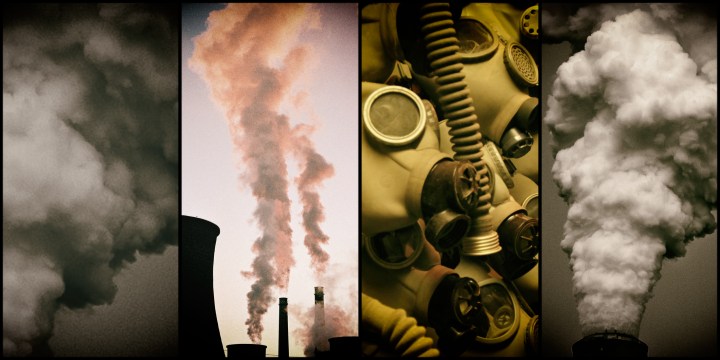OUR BURNING PLANET
The social cost of emissions could choke the global economy, new study finds

When it comes to costs and the climate crisis, often the link is between how much it costs to achieve net-zero targets. It seems, however, that the conversations ought to be looking at the economic damage of the climate crisis and its consequences, as a study released on Monday shows the damage by the end of the century may be six times higher than previously thought.
According to a study titled, “The social cost of carbon dioxide under climate-economy feedbacks and temperature variability”, published in the scientific journal Environmental Research Letters, the economic damage from a single tonne of carbon dioxide can be more than $3,000 (R42,866). The findings show that previous studies have severely underestimated the cost of climate change, as seen in the United States’ prices of the social cost of carbon at $51 per tonne when determining the cost of projects linked to greenhouse gas emissions.
According to the study, which used a climate-economy model called PAGE, global GDP would be 37% lower by 2100 than it would be if mitigation measures were in place, and 6% lower if lasting damages were to be excluded from the estimations. Previous research by the Swiss Re Institute shows that 18% of GDP of the worldwide economy by 2050 could be affected if global temperatures rise by 3.2°C.
These projections and similar studies play an important role in informing governments on how to calculate costs and benefits of reducing greenhouse gas emissions. According to the study, if damage to the economy continues at a rate of 50%, it would need to decrease by 2% to reduce the cost of climate change to below $2,500 per tonne of carbon dioxide.
“The risk of costs being even higher than previously assumed reaffirms the urgency for fast and strong mitigation. It shows that choosing to not reduce greenhouse gas emissions is an extremely risky economic strategy,” said Paul Waidelich, researcher at ETH Zürich.
The jump in cost to the economy is mainly due to higher economic damages in the global South, the study found, and the consequences of slow and lacking adaptation to a changing climate. The authors of the paper also focused their research on longer-term consequences of climate change, such as the effects of extreme weather events — droughts, fires, heatwaves, storms — on health, savings and labour productivity.
“While there is no clear evidence for adaptation to market impacts of climate change, it seems unlikely that countries would not invest considerable resources in reducing the lasting effects of temperature increases if actual damages in the (far) future were as big as simulated,” the researchers said in the study.
Although the study points to adaptation being a possible mitigating solution to the costs of climate change, the United Nations Environment Programme’s Adaptation Gap Report 2020 shows that implementation of adaptation is growing worldwide, but there is very little evidence of climate risk reduction.
The Global Adaptation Mapping Initiative identified almost 1,700 articles detailing adaptation actions worldwide, with only 3% actually reducing risk. Only 400 adaptation projects financed by multilateral funds in developing countries have adopted climate adaptation strategies, out of 75% of nations worldwide.
According to the UN report, climate adaptation is set to cost between $140-$300-billion by the end of the decade, and between $280-$500-billion by 2050. Alongside these huge numbers is the risk that adaptation costs will increase faster than adaptation-orientated finance.
“The more we know about the risks of climate change, the more urgent action becomes. Every year we have seen more natural disasters linked to climate change, and the situation is going to keep growing worse until we can achieve global net-zero emissions.
“While climate variability does not change the long-term best estimate of climate change impacts by all that much, it increases the range of risks, and those events can have long-lasting effects,” said Dr James Rising, professor at the University of Delaware and London School of Economics and Political Science.
Developing countries have been lagging behind on adaptation strategies due to a lack of funding and developed countries not following through on their climate pledges to developing countries.
In South Africa, adaptation in the form of transitioning from dirty coal to renewable energy has been plagued with alternatives such as nuclear and gas, which still pose an environmental threat, risking worsening climate change effects. DM/OBP





















Comments - Please login in order to comment.